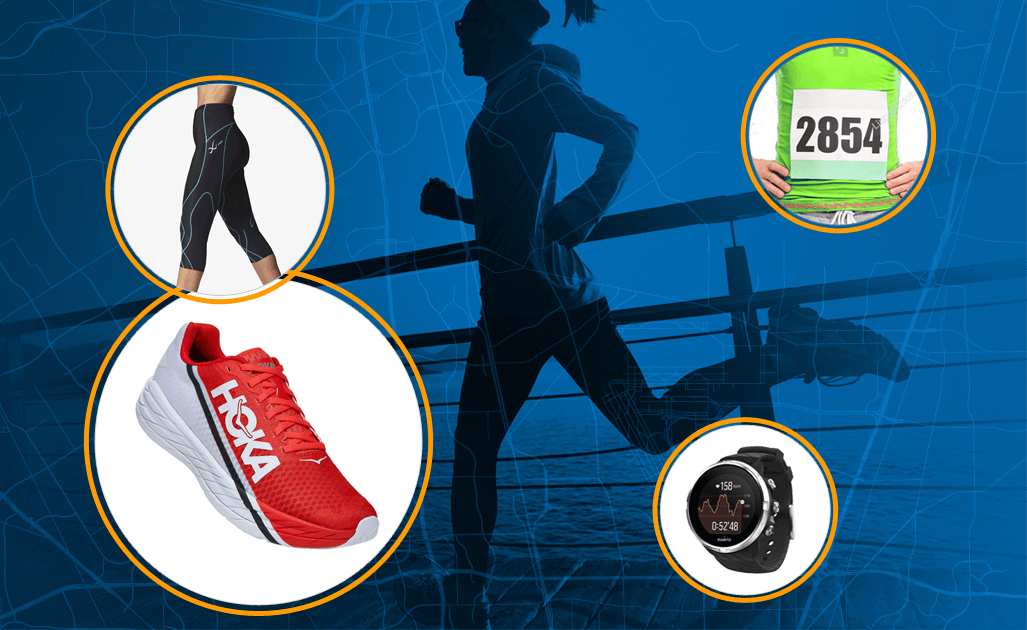How do you start running?
Type that one into Google and you’ll find that, like pretty much every big question out there, there’s a short answer and a long answer.
Running is hard. That’s kind of the whole point. It’s a way to challenge ourselves and grow from the lessons learned along the way. It’ll get easier, but it’ll never get easy.
With that in mind, give yourself permission to take it slow.
Don’t be afraid to start with walks, especially if you’re just starting to build up your cardiovascular fitness. Walking shares so many benefits with running:
Those intervals might start out few and far between, and then increase in duration and frequency as your fitness develops.
...you may start to focus on developing your running foundation.
Research shows that sharp increases in mileage make novice runners more susceptible to injury, so keep your increases small.
While you might be more than ready to put the pedal to the medal or keep building for months on end, your body will more than likely fight back if you push it too far, too fast.
Practice doesn’t make perfect (because there’s no such thing), but it sure does make progress.
...you absorb the workload and recover with a higher capacity for future training stress.
Not only that, but consistency teaches your body and mind that you’re doing something intentional — not just running for your life every once in a blue moon.
That will help you establish a reliable routine that feels more like a comfort than a hassle.
Once you’re in the habit of running regularly, you’ll want to spice things up a bit.
Different running goals might require different balances and combinations of these three crucial components.
Preparing for a fast 5k, for instance, won’t look the same as training for an ultramarathon.
But even sprinters need endurance, and distance runners have their own need for speed.
With all that in mind, be prepared to stick it out for the long haul.
I’ll repeat: Running is hard. It doesn’t offer many immediate gratifications (besides the serotonin spike of a good runner’s high). But the benefits that build up over time will shock you when you look back at where you started.
You’ll hit plenty of bumps, dips, and plateaus en route. Real growth comes from riding out the waves.
There’s plenty you can do on your own to get started out with a basic running rhythm. When you’re ready to up the ante, though, there’s nothing like learning from people a few steps ahead of you. They know what it’s like to be right where you are — from empowering successes to demoralizing struggles and everything in between — and what it takes to move the needle forward. If you’re itching to dial in your technique, set personalized goals, find fresh motivation, and make your efforts count for all they’re worth, then it’s time to expand your circle of running support.
You can learn more than enough to get started by surrounding yourself with experienced runners.
If you don’t know any runners personally, run clubs are an easy way to get to know others in your local running community.
A good plan makes all the difference between flailing and improving.
There are thousands of options to choose from (if not more), so make sure you pick one from a reputable source that matches your goals.
Here are some of the most trustworthy banks of plans for new runners and runners switching over to a different discipline or upping the ante:
You don’t need to be a pro to sign on with a running coach.
They’ll help you...
Relying on their knowledge will free up more time and energy that you can put to better use on the run!
But the relationship between a runner and their coach is just as unique as any other in your life.
One caveat about working with a coach: They don’t know you like you know yourself.
We’ve done some of the grunt work for you and rounded up some of our favorite running coaches to help narrow down your options. Get to know them, their philosophy, and how they strive to support the runners in their care.
Thinking about working with a coach to help you start running, get faster, go longer, and prevent injuries? These 8 coaches are here to set you off on the right foot.
Q: How can new runners best build good habits in the sport?
David: Consistency is everything, and even 10 minutes a day will have a massive impact on long-term growth!
Because running is weight-bearing, it's essential to load the musculoskeletal system at least 4-5 days a week for it to start to feel more natural.
It might be really uncomfortable at first, and that's ok!
Slow down, take your time, and keep trying to punch the clock. Those small stimuli add up into adaptation over weeks and months that will make anything possible in the future!
Q: What's the first piece of advice you have for getting started running from scratch?
TJ: Running is HARD! What makes it easier is not being married to the numbers, especially when first starting out. Leave the data and other black box algorithm devices at home.
Although those pieces of fancy tech look cool and have the pithy marketing to attract even the world's best, they're a vector for self-criticism in a sport that's already tough enough.
Give yourself tons of grace by running by time and feel alone. You can bring in other tools in a mindful way as you gain experience in the process.
Q: What advice do you have for a runner interested in switching disciplines or goals in a running?
TJ: Don't be afraid to switch things up and try new things. When something is working, lean into it. When something doesn't feel right, or a new area of interest arises, follow it. Learn from those experiences.
Over time you can narrow your scope as you build on a variety of experiences. Goals should always remain flexible because life can change our perspectives, interests and outlooks.
Don't be afraid to take a 180, try a road marathon when you've been running on the trails for years, or go on a long adventure when you're comfortable with shorter ones. The greatest opportunities for learning come when we get out of our comfort zones.
Q: What makes you unique as a coach?
TJ: We believe a rising tide lifts all boats. With everything we do at Microcosm, that truth remains our bedrock. It guides us as we coach to lift up each of our athletes to their greatest potential through unconditional support and daily feedback.
It underlies our goal of perpetuating the growth of a diverse community of athletes from around the world as we bring those athletes together, both through our online community and in real life meet-ups.
At Microcosm, you're not just getting the best science backed, individualized coaching, you're getting the unconditional love and support of an entire community too.
Q: Why do you coach?
TJ: I found a community in the running world and became a coach to not only satisfy a deep want and need to help others achieve their goals and potential but perpetuate the continual growth of that community too.
Q: How do you best support new runners?
TJ: I best support new runners by providing them with a system that allows them to build a sustainable running habit while also providing the space, accountability, support and encouragement to help grow that habit over time.
Q: What do you like most about coaching?
Jess: It’s such an honor to be part of the process with someone. Every runner I work with has bigger reasons to run than just checking off a race or distance on a bucket list.
Q: What’s your coaching process look like?
Jess: I like getting to know every runner, find out what their goals are and what their biggest obstacles are. Then I can create a training plan designed to help them see what they're made of. It’s part science, art, and cheerleader, and it brings me a lot of joy.
Q: What’s it feel like when you see runner’s achieve their goals?
Jess: It’s like I get a front-row seat to someone’s moments of self discovery. I get to see and help people really learn to love and accept who they are, and go after big goals.
Q: What advice do you have for new runners?
Jess: Do your best every day. Avoid getting stuck on a specific date or time to achieve a running goal. Instead, set achievable goals, work hard, and take care of yourself. It’s a lot more fun that way.
Q: How about runners exploring a new avenue, or getting back into the sport after time off?
Jess: More isn’t always better. Just because you used to run 50 miles a week 10 years ago, doesn’t mean that’s what you should do now. You’re a different runner and different person than you were back then. Chances are pretty good you have different stressors and life circumstances. You have to allow yourself to evolve and change.
Q: What’s one secret to making progress in running?
Jess: I’m constantly telling people to take time off to recover. The magic happens in the spaces between the harder efforts. That’s when those adaptations actually happen to help you get stronger and faster.
Q: What are some memorable moments from your own intro to running?
Kelly: The most memorable moment from when I started running for the sake of running was when I ran my first double digit run. I was in college, and there was a 2.5 mile loop around the outside of campus. I ran that loop 4 times, in the rain, listening to a playlist that played All the Above by Maino 3 times followed by Great Escape by Boys Like Girls once. Yes, my iPod had more than 2 songs, and yes I listened to the same loop during my first half marathon…. for all 2 hours and 3 minutes.
Q: What’s the most important tip you have for those interested in getting started running from scratch?
Kelly: Start slow, stay consistent, and make it fun! Starting is the hardest part, and many like to start out too fast and doing too much. Starting with run/walk intervals a few times a week and making it fun (whether that’s listening to your favorite podcast, running somewhere with a view, running with a friend, etc) will make you more likely to stick with it.
Q: What about for runners interested in switching disciplines or goals in running?
Kelly: Leave your ego behind, and trust and enjoy the process. When switching disciplines or goals in running, it’s probably something that is new and/or hard for you. Getting better and reaching your goals takes time and a willingness to be bad at something to start.
Q: What’s one aspect of your coaching style that makes you unique?
Kelly: The emphasis I put on my coaching doesn’t have to do with outcomes - it has to do with sustainability. My goal as a coach is to help athletes learn how to create a training plan that fits into their life and help them give themselves the grace to be imperfect. There are many ways to reach your goals, and following a training plan perfectly is only one of them. Success to me is when my runners enjoy training and become better humans from their running.
Q: Why did you decide to become a running coach?
Kelly: I ran my first ultra (a 50k) in 2017. The feeling of crossing the finish line after running for 31 miles was one of the best feelings in the world, and I’m still amazed I was able to do that. Women are underrepresented in ultramarathons, and I wanted to help other women train for their first ultra so they could have their own amazing experience and get more women in the sport. Sometimes you don’t know something is possible until you see someone else do it.
Q: How do you best support brand new runners?
Kelly: I best support brand new runners by helping them set themselves up for success. We work together to build their plan so that it fits into their life, doesn’t ramp up too quickly, and includes any other activities that they love to do. We also keep in close communication so that I can alter their plan as much as needed based on what’s going on in their life, how they respond to training, and how they’re recovering.
Q: How about more experienced runners?
Kelly: I best support more experienced runners by helping them realize that they don’t need to be perfect in order to succeed, and that resting is productive. Many of my more experienced runners enjoy having a coach tell them NOT to do things so that they don’t do too much and burn out. I also help them build a plan that targets all levels of intensity (V02 max, threshold, steady state, endurance and recovery runs) to improve all aspects of their running (yes, even for ultras!).
Q: Why did you decide to become a running coach?
Lindsey: I decided to become a running coach because my greatest passions in life are connecting with others and trail and ultra running. Coaching is the perfect way to combine those passions.
As a running coach, I do not see myself as some sort of “helper”, but more as a collaborator with each athlete. I work alongside them to help them chase HUGE athletic dreams that align with their values as people, too.
Achievements in running, big or small, only come when athletes can learn to love themselves and be content in the process. There is no achievement or victory that will be so life altering that it changes how an athlete truly feels about themselves, so learning to love one’s self in the process makes goal-chasing all the more fun!
Q: What running reality should new runners keep in mind?
Lindsey: At the very beginning, it is important to acknowledge that running might not feel fun. Because of the way our bodies adapt to endurance training over time, sticking with small, consistent training sessions is so key in feeling good while running. This is a tough concept to grasp when someone has not yet reached that point before.
Q: What’s your coaching philosophy?
Lindsey: I really want new runners to give themselves permission to be a runner. I give them permission to truly consider themselves an athlete, whatever they want that to mean. With brand new runners and experienced/elite runners alike, process-oriented goals are key.
As a coach, I take the goals of any athlete equally seriously despite a variety of experience levels. I like to simplify running for my athletes of all running experience levels as much as possible. They can trust that I am applying the latest research and sound training methodology and they do not need to meticulously worry about data or other stressors that will hurt their growth trajectory.
Q: What are some memorable moments from your own intro to running?
Brandon: The most memorable thing in my running intro was the running community, and how huge and supportive the community is!
Q: Why did you start running?
Brandon: I started running because a doctor told me I couldn’t and wouldn’t be able to run long distance with my Asthma condition.
Q: Why did you become a running coach?
Brandon: I became a running coach because I wanted to help people who want to run but think they can’t. Being a Certified Personal Trainer first I noticed my clients struggled more with cardio and I wanted to change that.
Q: What’s one aspect of your coaching style that makes you unique?
Brandon: I run with my local clients to hear how they are breathing, listening to their foot strike, watching their form, and giving real-time cues during our run.
Q: What are some memorable moments from your own intro to running?
Semaj: I remember my first time running summer track, I got smoked in my first race! Then, eventually, winning the High School Conference in the 100, 200, 4x1, and 4x2.
Q: Why did you decide to start running?
Semaj: I’ve always loved running, I love running before I knew track existed. I used to race all my friends mailbox to mailbox. I really wanted running track seriously until the summer going into 11th grade.
Q: What’s the most important piece of advice you have for those interested in getting started running from scratch?
Semaj: Trust the process, there is a lot to learn about running. Take it one step at a time, make sure your perfect each step before moving to the next. Have patience!
Q: What’s the most important piece of advice you have for a runner switching up their training goals?
Semaj: Make sure you know for sure that this is the right move. You want to move forward not backwards!
Q: What gives you your coaching edge?
Semaj: I can relate to the feeling of how it feels to run fast, how certain workout tax the body, the ups and downs of performing.
Q: Why did you decide to become a running coach?
Semaj: I decided to become a youth speed coach because I wanted to give the kids something I didn’t have growing up. I want to teach kids the skills early. I believe high school is the age they should thrive at, they shouldn’t be learning how to run as a teenager.
Q: How do you best support brand new runners?
Semaj: I try to motivate them as much as possible, running is difficult when it’s something new to a person.
Q: How about more experienced runners?
Semaj: I love seeking information about what works for them: how they fuel their body, how many days a week they train… I try to connect with them with more knowledge and just learn from them.
Q: What are some memorable moments from your own intro to running?
Evan: I ran my first race about 30 years ago at the Starlight Run 5K in Portland, Ore., wearing a T-shirt, cut-off sweat pants and hiking boots.
Q: What are the most important things new runners should focus on?
Evan: There’s really two things.
Q: What should a runner keep in mind when switching goals or disciplines?
Evan: Be patient. For example, if you’re planning to go from running marathons to ultras, there’s a big difference in distance and terrain. Practice + patience, and you’ll get better.
Ask for help. If you’re trying to achieve a specific running goal, you can find all the info you need to do it on your own. But getting help from a coach or more experienced runner can help you get from where you are to where you want to be faster.
Q: What’s your “claim to fame” as a coach?
Evan: Every runner should lift weights. I used to just run a ton of miles. But when I ran my first 100-mile race about 12 years ago, I dropped out at 88 miles with major pains and severe shin splints.
After that race, I did a ton of research, worked with multiple coaches, and lifted weights 3x a week for a year. I got leaner, stronger, and faster. I ran the same 100-miler and finished without feeling destroyed.
I’m 47 years old. I’ve been running marathons and ultras for 25 years, and I don’t have any serious running-related injuries or aches and pains. I’ll say it again. Every runner should lift weights.
Q: Why did you decide to become a running coach?
Evan: I’ve run every distance from the 5K fun run to the marathon and 100-mile ultras. I’ve made all the mistakes and learned from them. I also know how rewarding it can be to train for a race and finish. I became a personal trainer and running coach to help people get healthy and chase big running goals.
Q: How do you best support brand new runners?
Evan: I like to ask lots of questions to find out what their goals are, why they’re interested in running, and find out what their work/life balance is like. That’s good info to create a training plan that fits a runner’s lifestyle and goals. Staying in touch at least weekly also helps new runners ease into running and training without getting overwhelmed.
Q: How do you best support more experienced runners?
Evan: I use an app to assign experienced runners workouts for lifting days and mileage for running days based on their goals. Then we stay in touch via the app to stay in touch, follow up, or address any questions or concerns.
Tell us about it in the comments.

Login to your account to leave a comment.
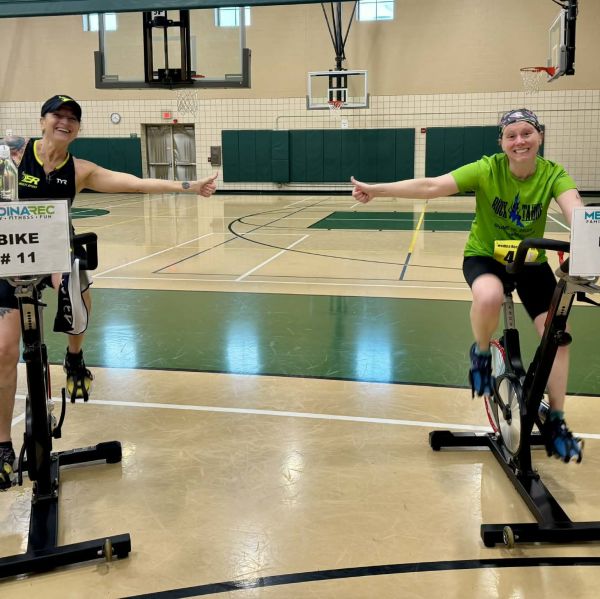
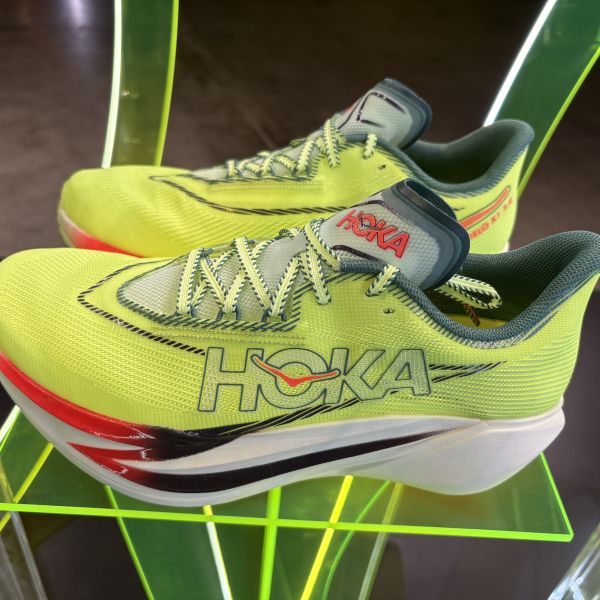
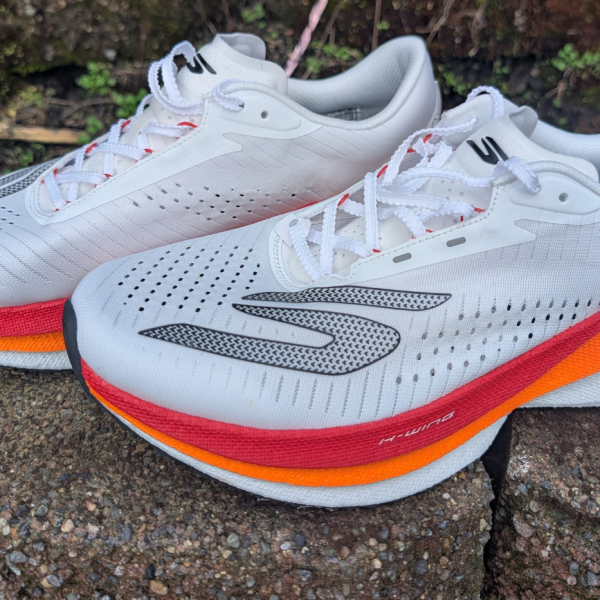
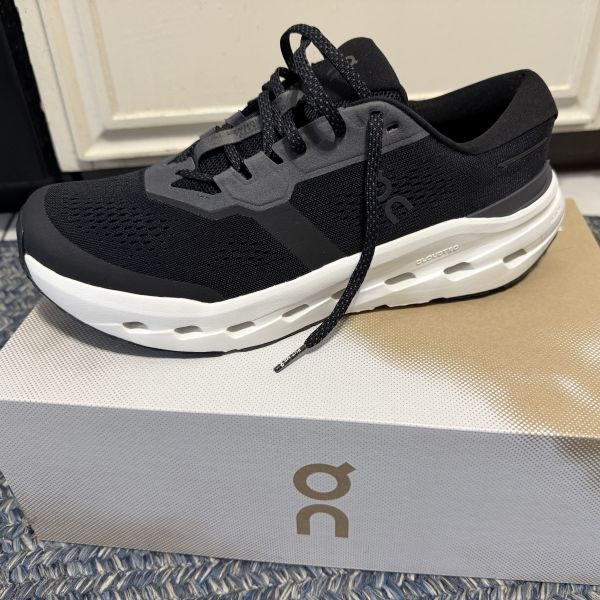
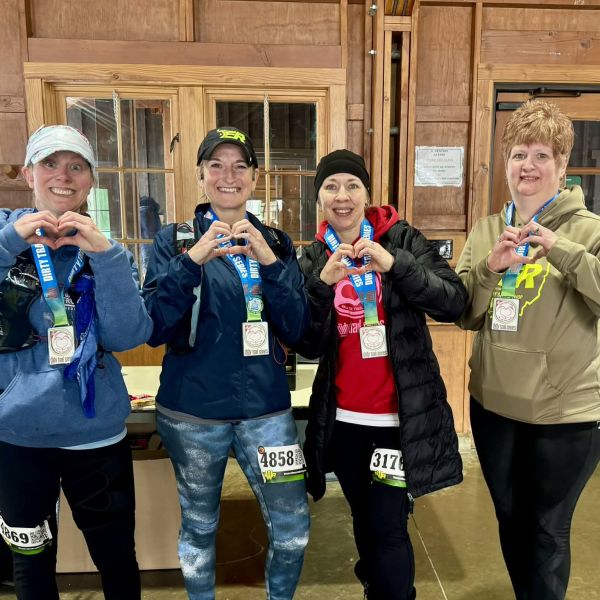
We Want to Give it to You!
